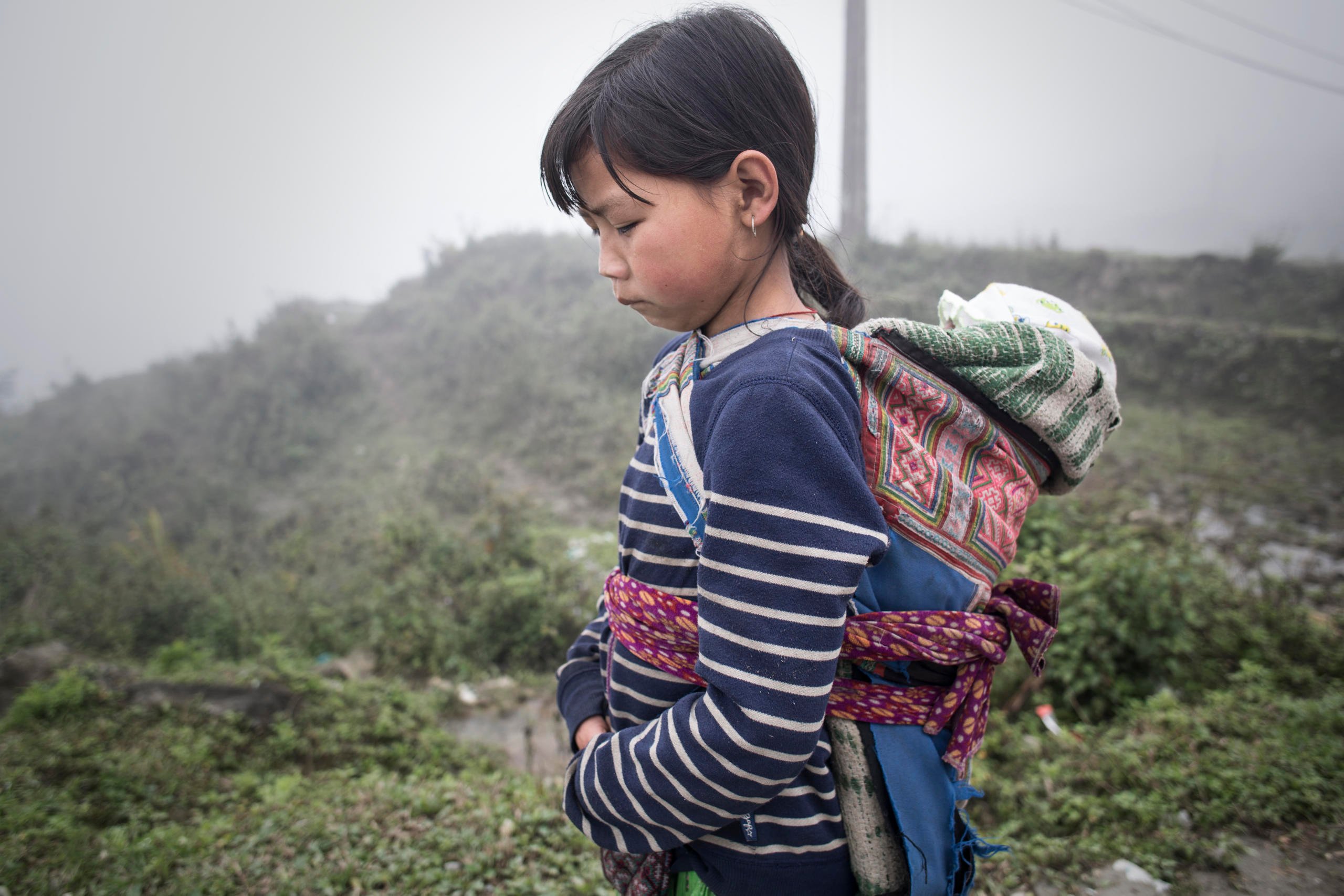In Pang’s mind, her daughter does not exist.
"She is not mine," she says, "I was too young to have a child. Anyway, I just saw her for a month before her father’s mother took her."
Pang prefers not to think about those days. She keeps her eyes fixed on the embroidery hanging on the wall in front of her. It shows a big horse standing in a colourful landscape. Today, her daughter would probably be able to describe the motive, but not in any of the Vietnamese languages Pang understands. Her daughter stayed behind in China, with the man Pang was sold to when she was fifteen. In October last year, Pang escaped her captivity. Among the many bad memories she left behind, is her daughter.
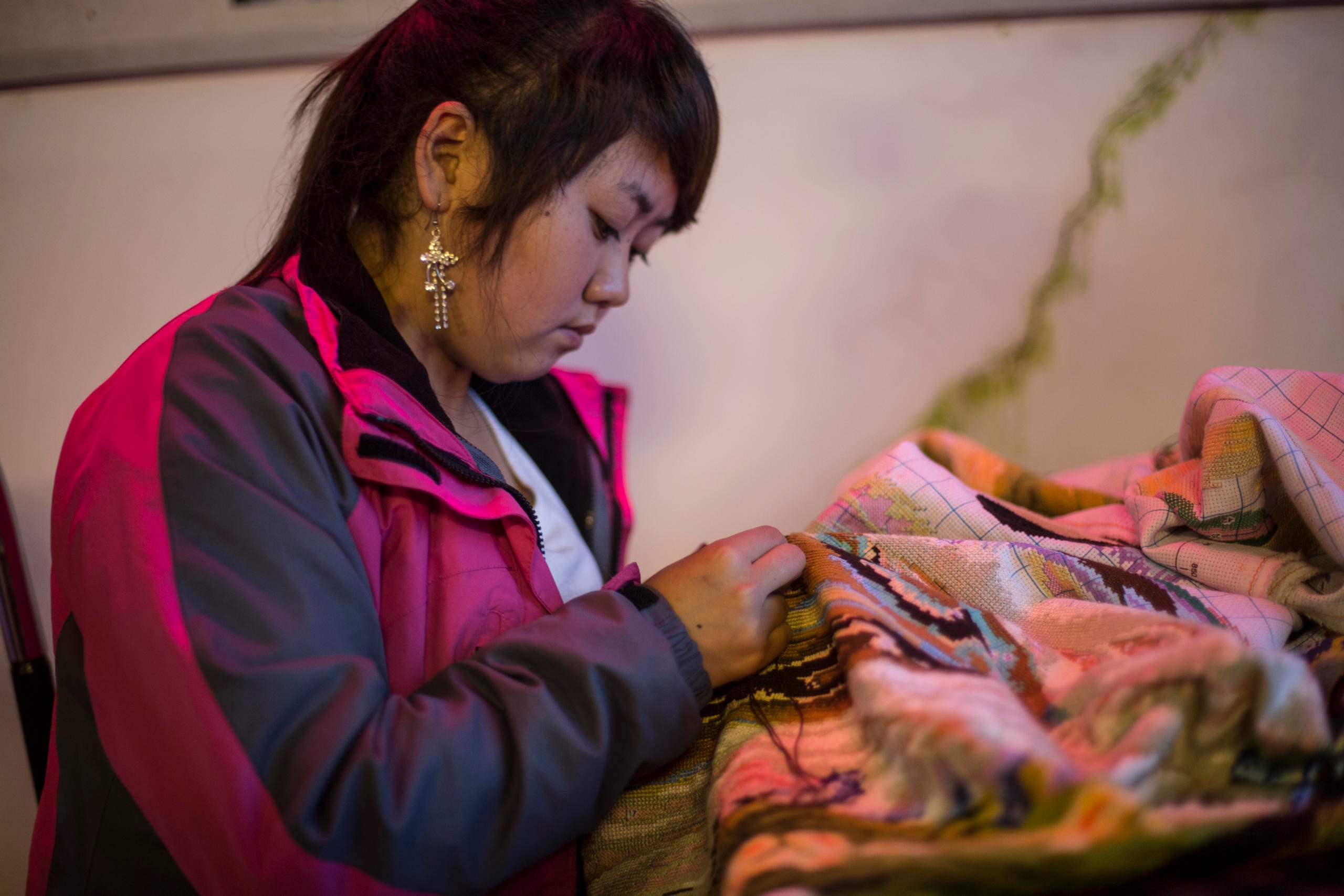
"Every day, I told myself to be strong," she says. "All I wanted was to go home."
Making money on tourism
The fog lies thick over Sapa, northern Vietnam. The terraces in the cultural landscape have been reduced from constituting a thriving tourist attraction to a tiring work place. Pang and Mai make time pass in an empty hotel lobby. As most women here, they make a little money on the tourists, in order to supplement their limited income.
"The men are too stupid to learn English and too shy to talk to women," my translator says, laughing.
The men are too stupid to learn English and too shy to talk to women.Translator
Once, the opium trade flourished here. In the nineties, however, Vietnam eradicated the narcotic poppy flower. Lacking alternative livelihoods, the region has become so neglected that the poverty at times is described as chronic. There is still one flourishing industry, though: women.
Not home from school
There is no need to resort to detective work in order to find the victims. The first people we meet nod their heads; of course they know of trafficking, they say, pointing toward a house on the other side of the road: It is a simple mud house surrounded by artichoke plants. Although we are in the middle of the harvest season, no one is outside working.
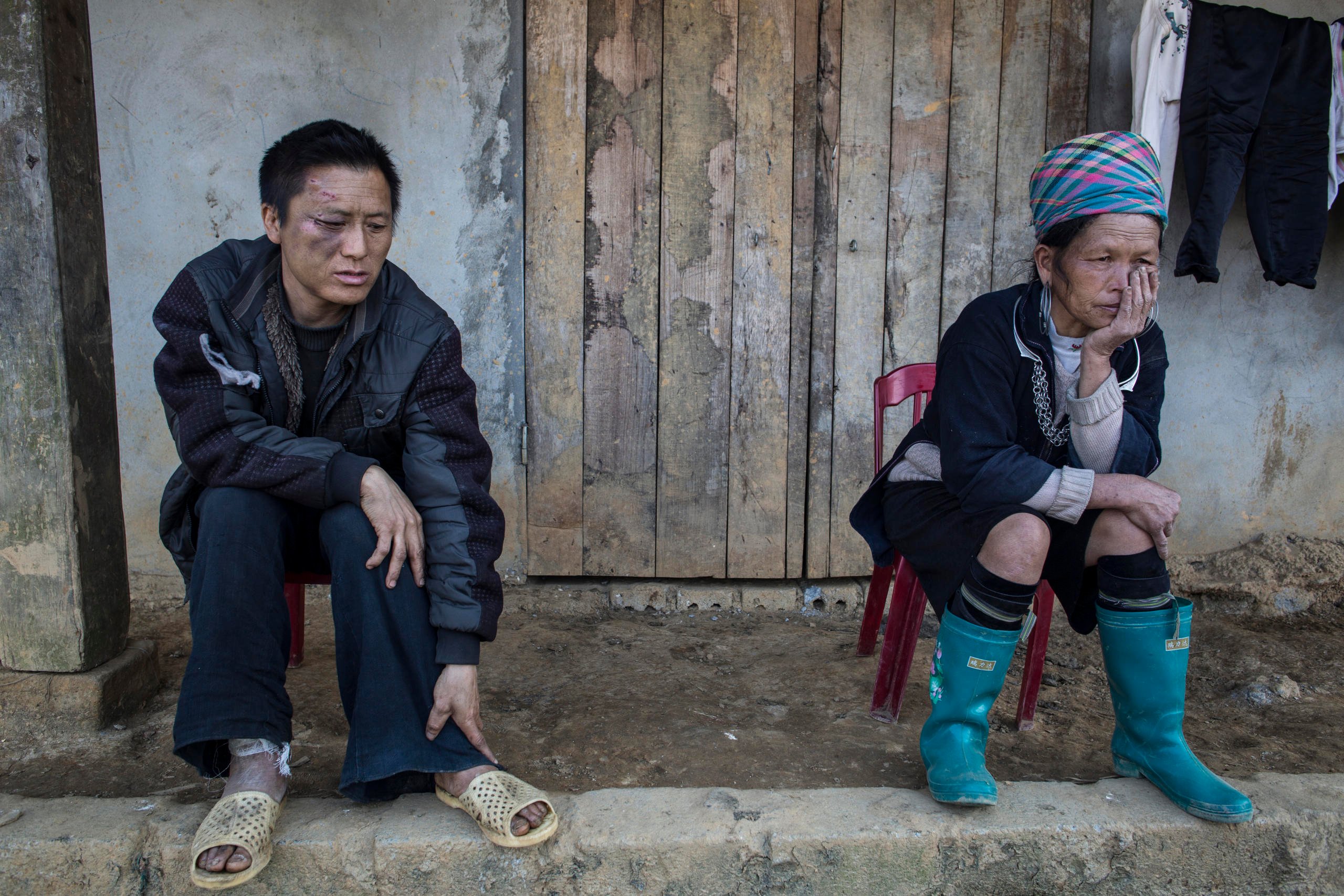
"We have not had the energy to work since Shu disappeared," the father in the house, Cang, tells us.
Only five days have passed since their daughter did not come home from school. The local shaman says she has been taken to China. It is not a totally wild guess.
"We have worried about this for a long time," says Cang. "In our town only, eight girls have disappeared over the passed years. We sent two cousins to the border river with a picture of Shu. My wife has moved in with her sister. She cries all the time and does not eat anything."
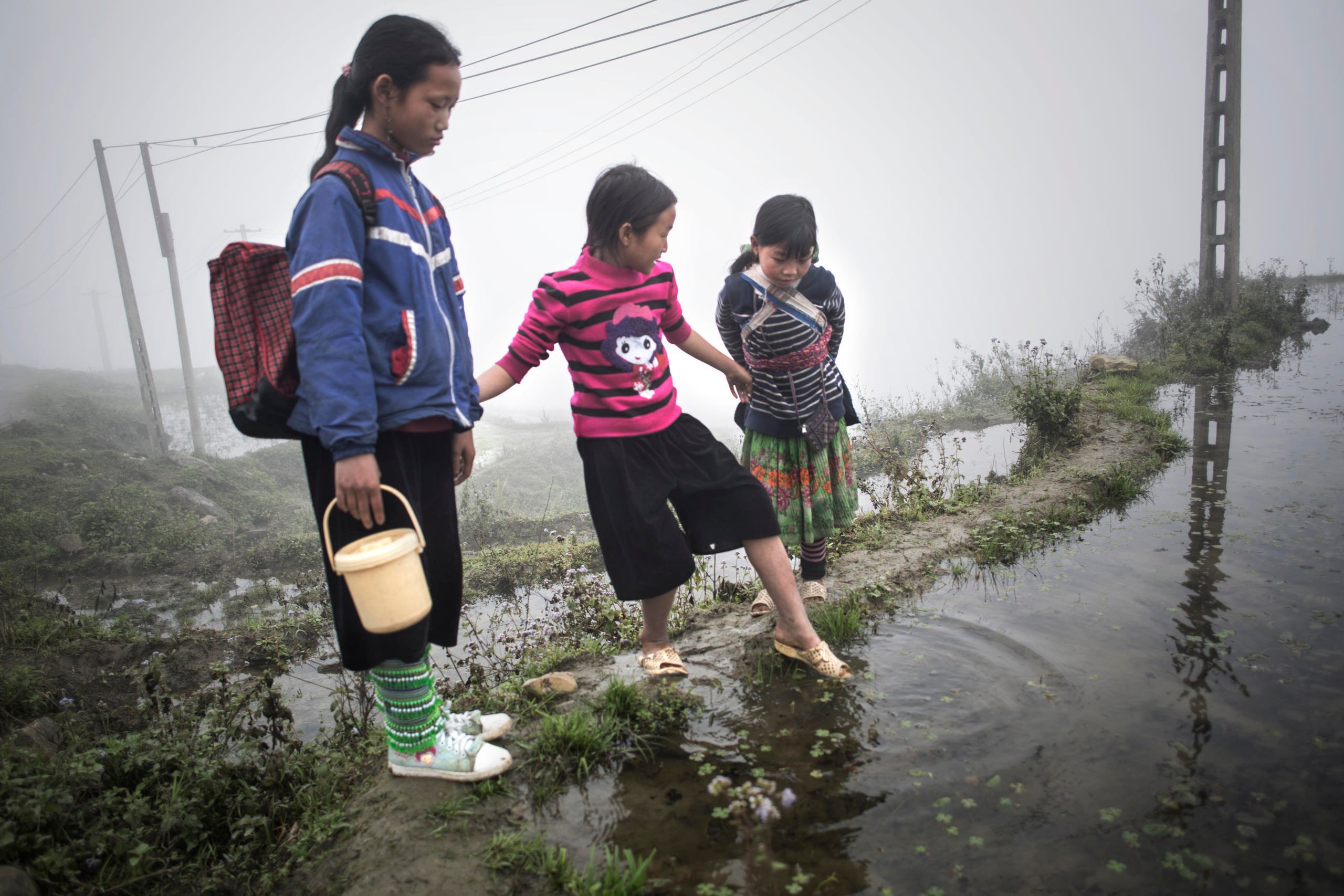
Lured across the border
Between Vietnam and China, traffic is extensive. The border is porous and has for a long time been used by indigenous for trading, smuggling and migrating. Trafficking is nothing new, but over the past years, the demand in China has increased drastically. The country’s one-child policy, together with the fact that sons are preferred to daughters, has led to a wave of gender-specific abortions. By 2020, the government estimates that there will be close to 30 million marriageable men failing in finding a wife. Those living in the districts will be among the most affected. Many will go to the border areas, where the inhabitants offer "their" daughters in exchange for a generous dowry. Often, girls are lured across the border with promises of work, romance, or drugs.
We came to a house where there were two other girls. I asked them why they cried, and they told me we had been sold. Then, I also started crying.PANG, kidnapped and sold as a child bride when she was 15 years old
"He said we were going to a party at his family’s place and gave me something to drink," says Pang about the man she vaguely new, and whom had started being attentive toward her four years ago. "All of a sudden, I felt my head aching. I could barely see and I lost my memory. I said yes to everything he asked me." The man stopped the car and they switched it for a motorbike. When they came to a river, she protested, but the man lifted her up and held her tight. On the other side, the journey continued for an hour.
"We came to a house where there were two other girls. I asked them why they cried, and they told me we had been sold. Then, I also started crying."
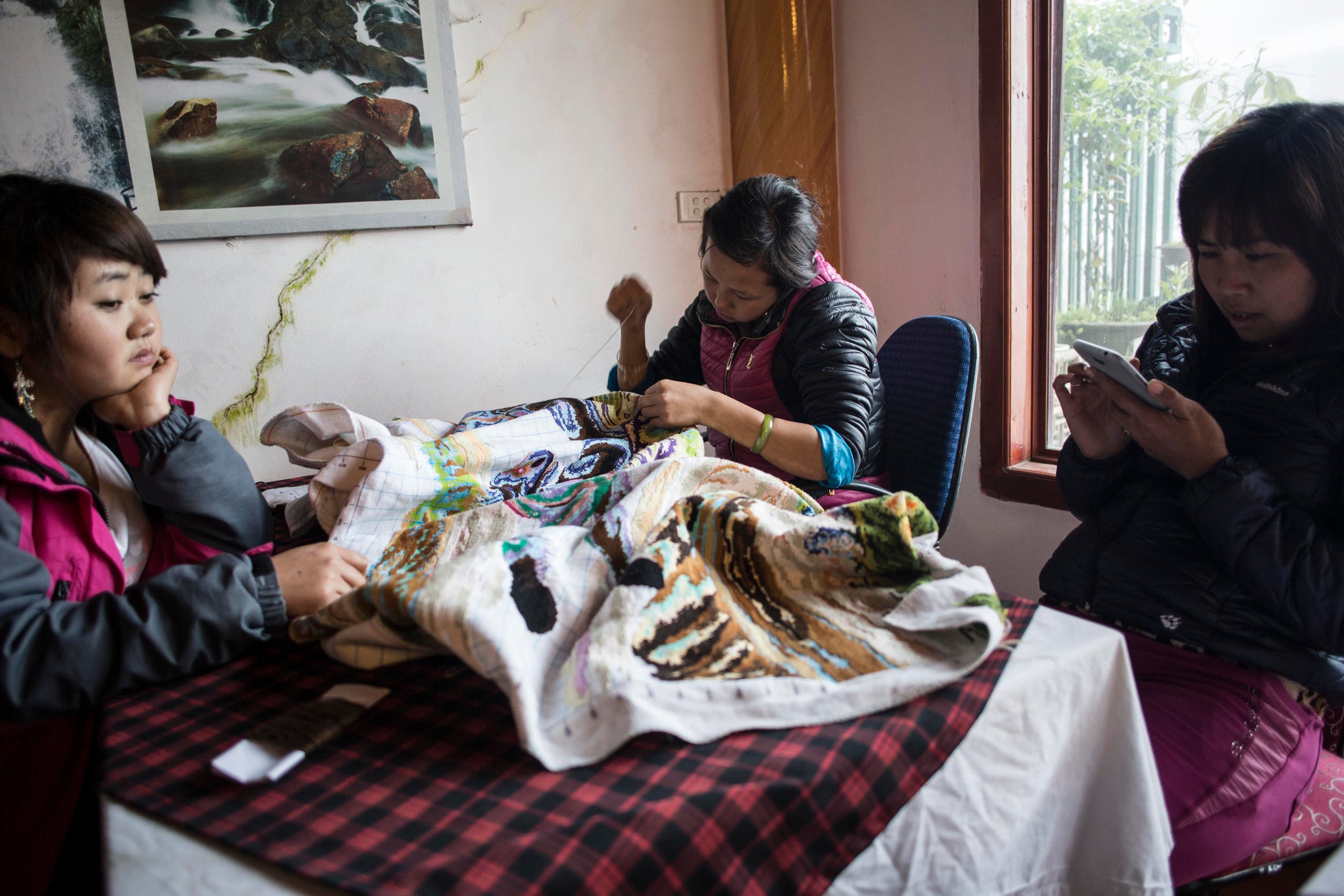
The head of the house, a woman, tried to comfort Pang, telling her that she would find a nice husband and that she would be able to send money home to her family. Pang was furious.
"Two or three men arrived at the time to look at us. They were old and at my father’s age. When one of them touched my hand, I screamed ‘Stop! I will kill you!’"
When she refused to put on the clothes and make up that was bought to her, the woman gave her an ultimatum.
"She said: ‘If you do not marry, I will take you to a brothel.’ I was afraid to sell my body. Next time, I chose the youngest man."
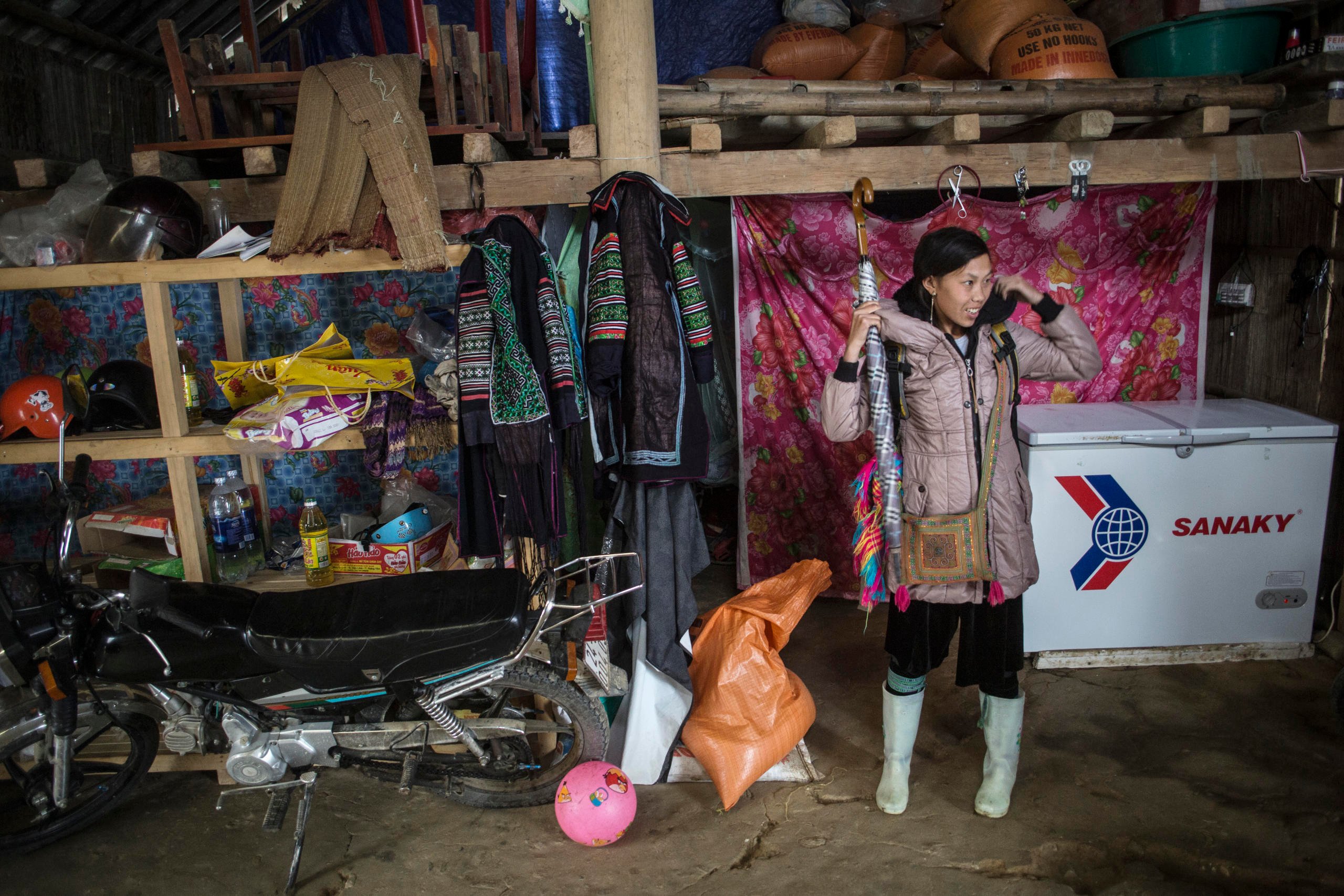
An increasing problem
Obtaining a full overview of the bride trafficking, is difficult. Hanoi reports about a thousand victims of trafficking every year, of whom two thirds are abducted and taken to China. Ethnic minorities in the north are overrepresented. However, the statistics only include those who have returned and been registered.
"In reality, the number is significantly higher," says David Knight, head of International Organization of Migration (IOM) in Vietnam. Trafficking is a growing problem, but the evidence is often anecdotal.
The child protection organisation Blue Dragon in Vietnam was first involved in trafficking eight years ago, when a girl contacted them from a brothel on the other side of the border. A group of the organisation’s employees travelled across and managed to save three girls. Since then, they have saved more than eighty.
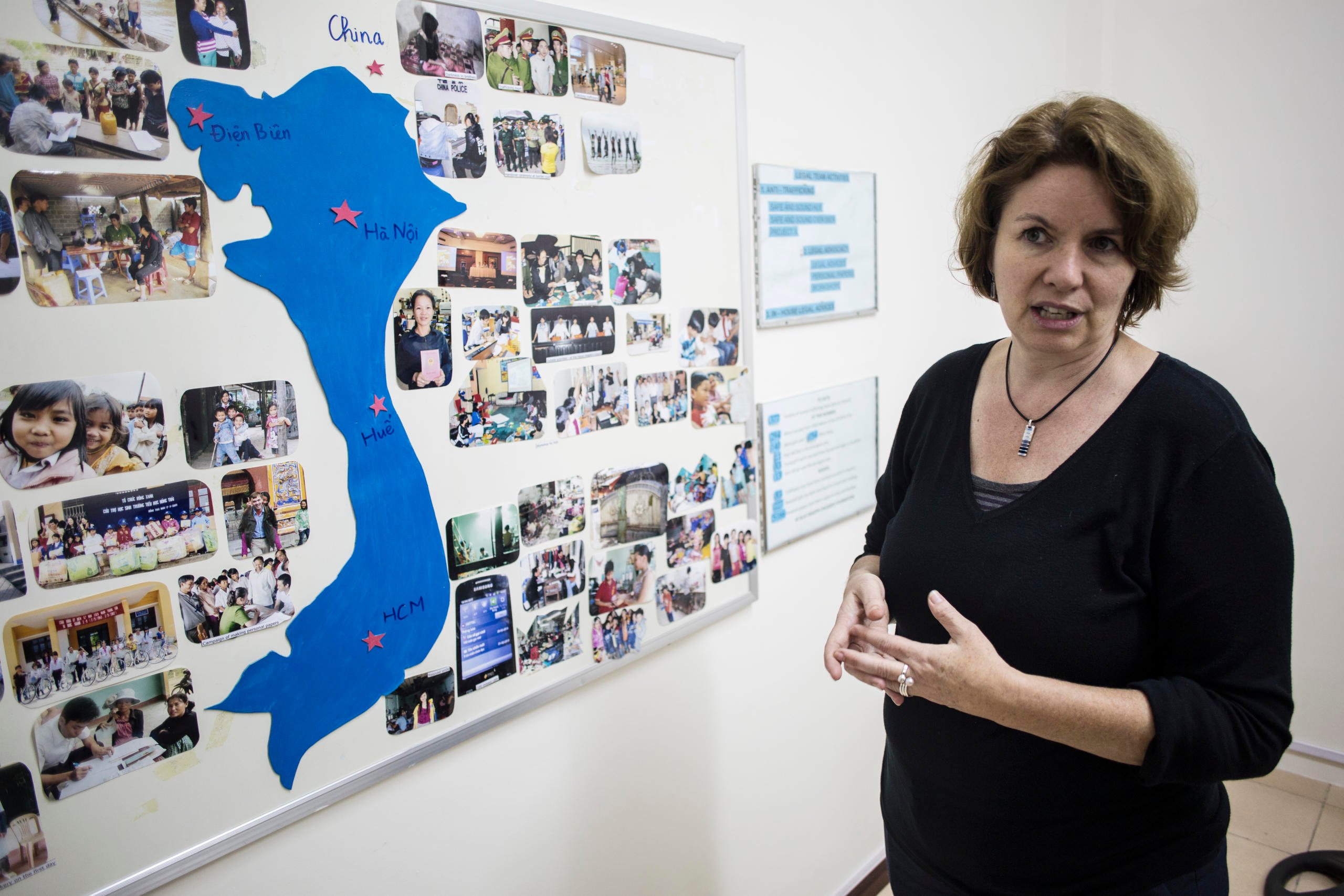
Like James Bond
"It is almost like James Bond," says director Julienne Carey. "The girls have managed to contact a relative, but often they do not know where they are, so we have to gather the clues. Then, we make an escape plan together."
Last autumn, Blue Dragon was about to save Pang when she managed to escape herself.
"I asked my husband for money to go to Guanzhout to buy new high-heels," she says. "Every day I asked him for more money, while at the same time making sure I was pleasing him."
When she had gathered close to 90 US Dollars, she began the 1500 km long journey home. She left without identification papers and without her daughter.
It is almost like James Bond: The girls have managed to contact a relative, but often they do not know where they are, so we have to gather the clues. Then, we make an escape plan together.JULIENNE CAREY, director of Blue Dragon
Mimi Vu is Director of strategic partnerships in Pacific Links, an organisation running a home for returned girls in the province capital Lao Cai. She says that many girls staying with them have escaped on their own.
"One girl slept under bushes. She was starving and had so many insect bits she was completely swollen. After having jumped off a bridge, attempting to take her own life, she met someone who spoke Vietnamese.''
The need for rehabilitation is huge. Carey describes some of the traumas experienced by girls who have been sold to brothels.
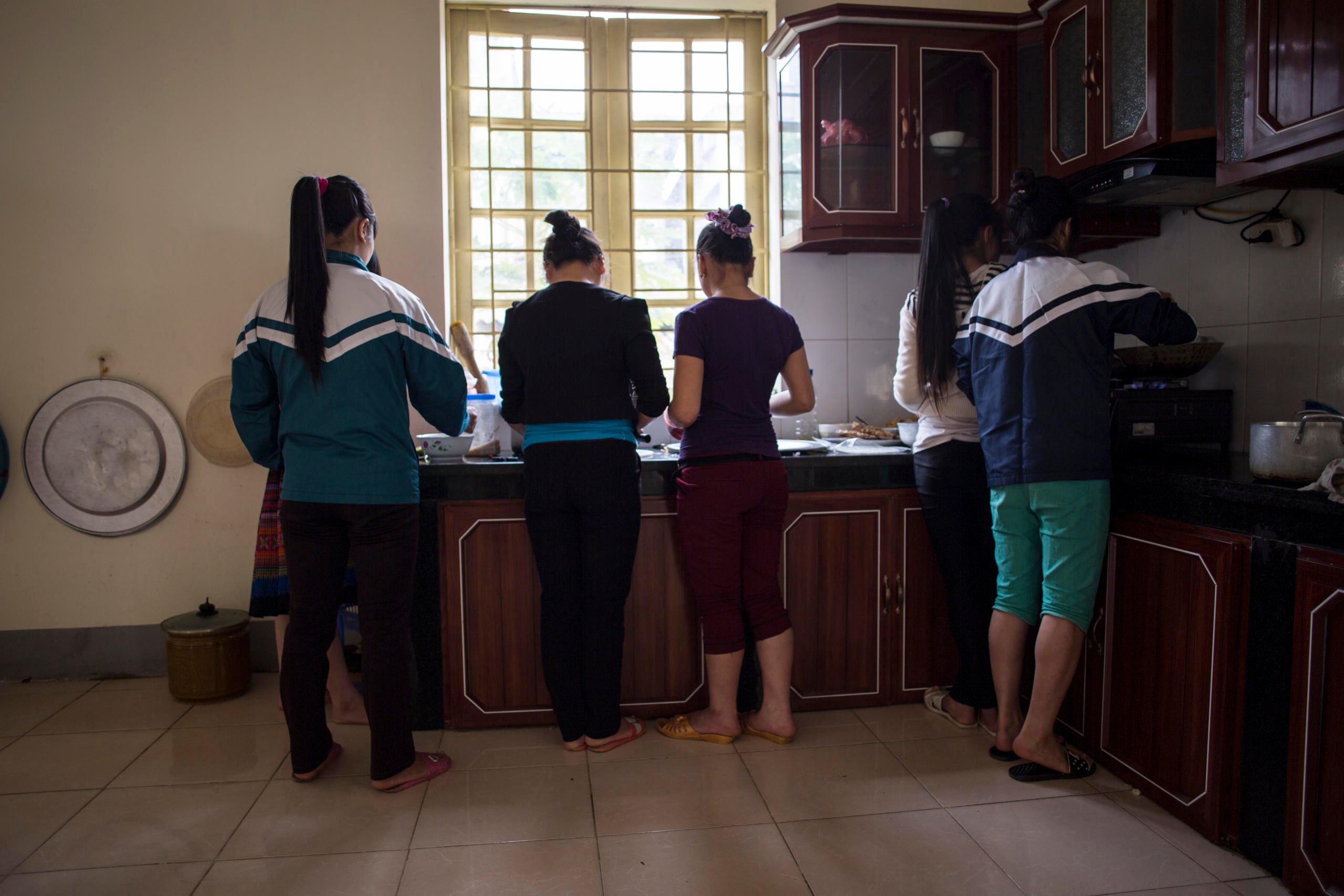
"Sometimes, the girls are forced to take care of twenty to thirty clients a day. They are manipulated and sold from place to place. When they return, they have lost all trust in people, they are afraid of the dark, and they think they hear steps. In some cases, the community refuses to accept the girls when they return, because their story is known. Other times, the family does not understand why their daughter has to leave the expensive light burning all night.''
One girl slept under bushes. She was starving and had so many insect bits she was completely swollenMIMI VU, director of Pacific Links
Dreaming of going abroad
Education is the main activity of Blue Dragon and Pacific Links.
"Because of internet and media, poor people are more aware of their situation and what other opportunities exists," says Vu. "But, many believe that all they need is to go abroad, and the money will start poring down on them. Often, someone in their entourage will take advantage of this naivety: Friends from school, friends of friends, or even relatives. Traditions also constitute a hinder; the biggest tribe in the north, the Hmong, often experience that suitors abducts their daughters, and then come back later with a dowry offer. Many parents will therefore wait to raise the alarm about their daughter’s disappearance.
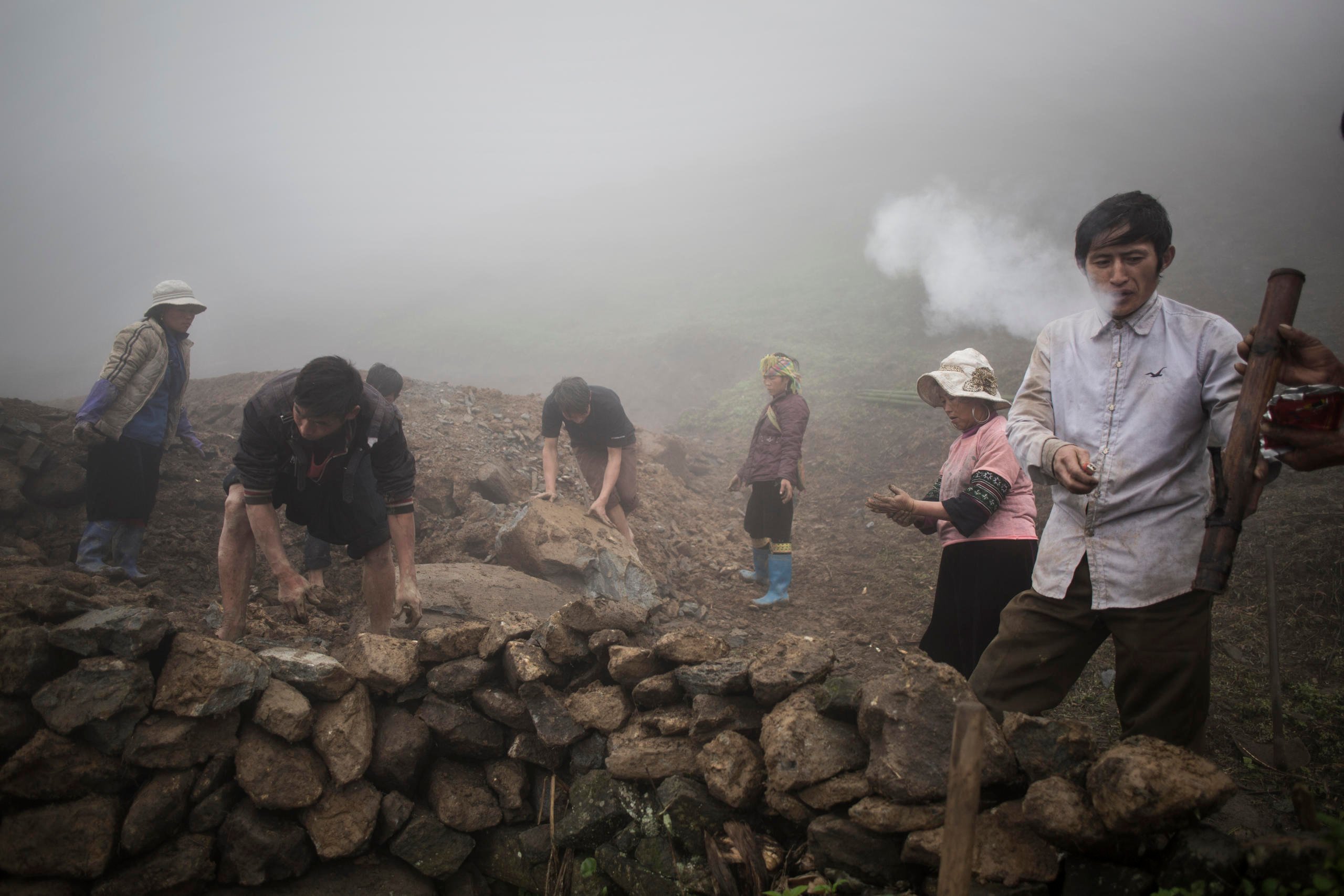
In late September 2013, China eased the one-child policy. Vulnerable girls in the neighbouring countries will probably not feel the difference right away. However, there is reason to be optimistic. IOM is working to establish a safe working migration. The governments are increasingly collaborating with each other and with voluntary organisations. In 2012, Vietnam imposed a new law that has been applied in several court cases against those running the trafficking. Also, the country is under pressure in relation to the discussions about Trans-Pacific Partnership, a trade deal between the twelve countries around the Pacific Ocean. Vu emphasises the importance of expanded rehabilitation.
"Sixty per cent of those arrested for trafficking in Vietnam are previous victims," she says. "Many have had their mental health broken, and return to what they know."
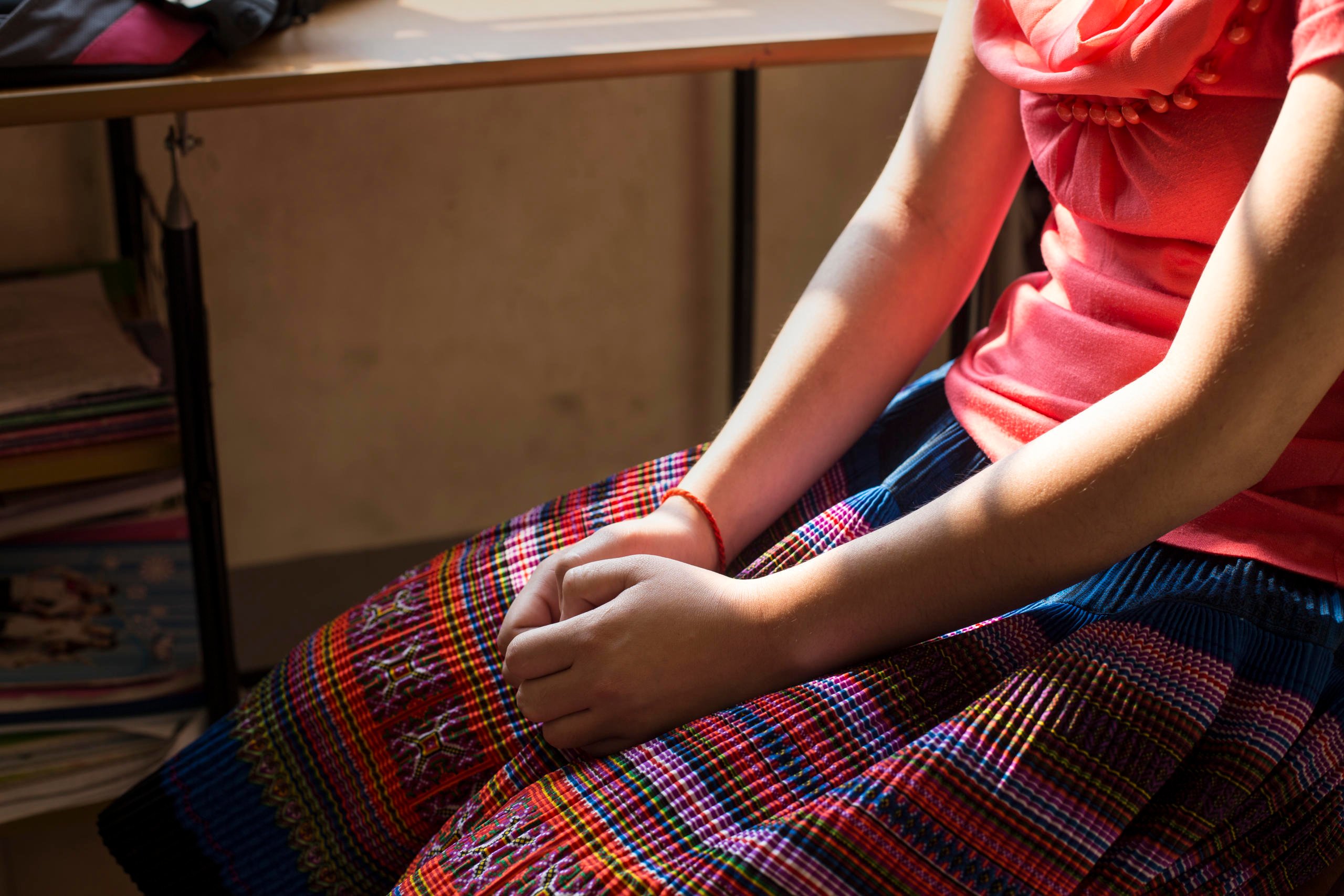
Telling her story to warn others
Pang shows no signs of trauma. Her attitude is tough and direct.
"If I ever meet the woman who sold me again, I will kill her," she says.
A girl in the Lao Cai home sheds a tear while telling about the abuse she was subject to.
"When someone wakes up from a nightmare in the middle of the night, we all gather around her in her bed," she says.
Before she was abducted, she dreamt of becoming a doctor. Now, she wants to be a social worker.
"I want to use my story to warn people about what can happen," she says. "Some of my friends are still in China."


